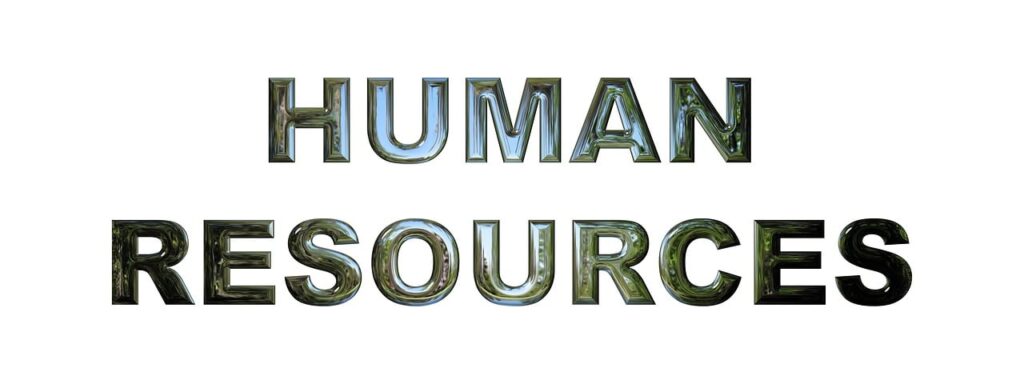How HR Consultancy Works: A Comprehensive Guide
Introduction
How HR consultancy works and functions have been an integral part of business operations nowadays. Due to the increasingly competitive business landscape, organizations face several challenges akin to effective human resource management. Therefore, HR consultancy can be a game-changer that can help businesses navigate operational complexities and optimize their human capital. Today, we will explore the functions of HR consultancy, its benefits, and its contributions to the success of organizations.
- Introduction
- 1. Understanding How HR Consultancy Works
- 2. Assessing Organizational Needs
- 3. How HR Consultancy Works on Strategies
- 4. Talent Acquisition and Recruitment
- 5. How HR consultancy works on Employee Training and Development
- 6. Performance Management and Appraisals
- 7. Compensation and Benefits
- 8. Employee Relations and Conflict Resolution
- 9. HR Consultancy works on Compliance and Legalities
- 10. Continuous HR Improvement and Evaluation
- Conclusion
- FAQs
- 1. What is the role of an HR consultant?
- 2. How can HR consultancy benefit my organization?
- 3. Are HR consultants only suitable for large organizations?
- 4. Can the HR consultancy's role assist with cultural transformation within an organization?
- 5. How can I find the right HR consultancy for my organization?

1. Understanding How HR Consultancy Works
HR consultancy refers to engaging external experts or consultants who specialize in diverse aspects of human resources management. These consultants work closely with organizations to assess their HR needs, develop strategies, and provide tailored solutions to optimize workforce productivity and organizational performance.
2. Assessing Organizational Needs
The first step in HR consultancy is the assessment of the specific needs and challenges the organization currently faces. It includes a comprehensive analysis of the existing HR processes, policies, and systems. Consultants gather information through interviews, surveys, and data analysis to identify areas that require improvement or intervention.
3. How HR Consultancy Works on Strategies
Based on the needs assessment, HR consultants collaborate with organizational leaders to develop effective HR strategies aligned with the company’s goals and objectives. However, these strategies encompass vast areas, including talent acquisition, employee development, performance management, compensation and benefits, and employee relations.
4. Talent Acquisition and Recruitment
One of the vital functions of HR consultancy is assisting organizations in attracting and selecting top talents. Consultants pull their expertise to create comprehensive recruitment strategies, develop job descriptions, conduct candidate screening, and streamline the hiring process. They may also advise on employer branding and leveraging various recruitment channels.
5. How HR consultancy works on Employee Training and Development
To secure steady growth and organizational development, HR consultants focus on employee training and development initiatives. They identify skill gaps, design training programs, and facilitate learning opportunities that enhance employees’ knowledge and competencies. It enables organizations to build a competent and skilled workforce, ready to adapt to changing business needs.
6. Performance Management and Appraisals
HR consultants are vital in establishing performance management systems that drive employee productivity and align individual goals with organizational objectives. They develop performance appraisal frameworks, design key performance indicators (KPIs), and provide guidance on conducting fair and constructive performance evaluations.
7. Compensation and Benefits
Managing employee compensation and benefits is crucial for attracting and retaining top talent. HR consultants assist organizations in designing competitive and equitable compensation structures, including salary benchmarking, variable pay programs, and employee benefits packages. They ensure compliance with legal requirements and industry standards while balancing the organization’s budgetary constraints.
8. Employee Relations and Conflict Resolution
Maintaining positive employee relations and resolving conflicts is essential for a harmonious work environment. Although HR consultants offer guidance on creating effective employee communication channels, they still need organizational collaboration in implementing grievance-handling procedures and fostering a culture of open dialogue and mutual respect. They mediate disputes and provide solutions that promote employee engagement and satisfaction.
9. HR Consultancy works on Compliance and Legalities
Navigating the complex landscape of employment laws and regulations can be challenging for organizations. Additionally, HR consultants stay up-to-date with the latest legal requirements and ensure that organizations comply with all applicable labor laws and regulations. They review HR policies and procedures to ensure legal compliance and minimize the risk of legal disputes or penalties. Consultants also guide ethical practices, diversity and inclusion initiatives, and data privacy to create a fair and inclusive work environment.
10. Continuous HR Improvement and Evaluation
HR consultancy is an ongoing process that emphasizes continuous improvement. Consultants regularly evaluate the effectiveness of HR strategies and initiatives by analyzing key metrics and gathering feedback from employees and stakeholders. They identify areas for refinement, implement necessary changes to optimize HR practices, and align them with the ever-evolving organizational needs.
Conclusion
To wrap up, how HR consultancy works is a valuable resource for organizations seeking to optimize their human resources management. By leveraging the expertise of HR consultants, businesses can address their specific HR challenges, develop effective strategies, and enhance workforce productivity and organizational performance. From talent acquisition and training to performance management and compliance, HR consultancy covers a broad area crucial to a thriving organization.
FAQs
1. What is the role of an HR consultant?
An HR consultant provides expert guidance and support to organizations in managing their human resources effectively. They assist in various areas, including talent acquisition, employee development, performance management, compensation, employee relations, and legal compliance.
2. How can HR consultancy benefit my organization?
One crucial role in how HR consultancy works is to bring specialized knowledge and experience to address HR challenges and improve organizational performance. It helps attract top talent, develop employees, ensure legal compliance, and create a positive work environment.
3. Are HR consultants only suitable for large organizations?
No, HR consultants cater to organizations of all sizes. Whether you’re a small startup or a large corporation, HR consultancy can provide tailored solutions that align with your specific needs and resources.
4. Can the HR consultancy’s role assist with cultural transformation within an organization?
Yes, HR consultants can play a vital role in cultural transformation initiatives. They can help organizations define and communicate desired values, facilitate change management, and foster a culture of innovation and collaboration.
5. How can I find the right HR consultancy for my organization?
When selecting effective HR and management consultants, consider how HR consultancy works on a broader picture, consider their expertise, track record, industry experience, and client testimonials. It’s essential to choose a consultancy firm that aligns with your organization’s values and understands your industry’s unique HR challenges.
We currently have active openings for various positions, please feel free to get in touch with us via email or mobile phone



